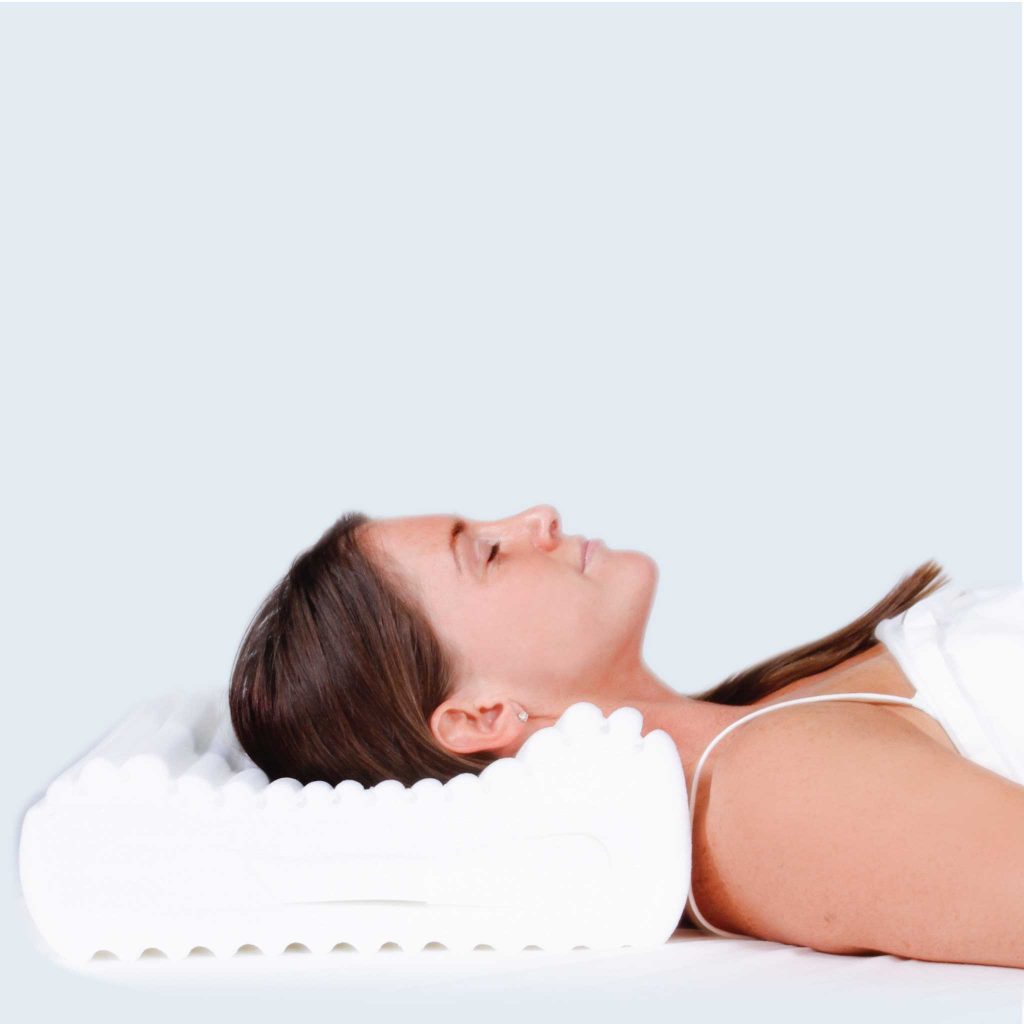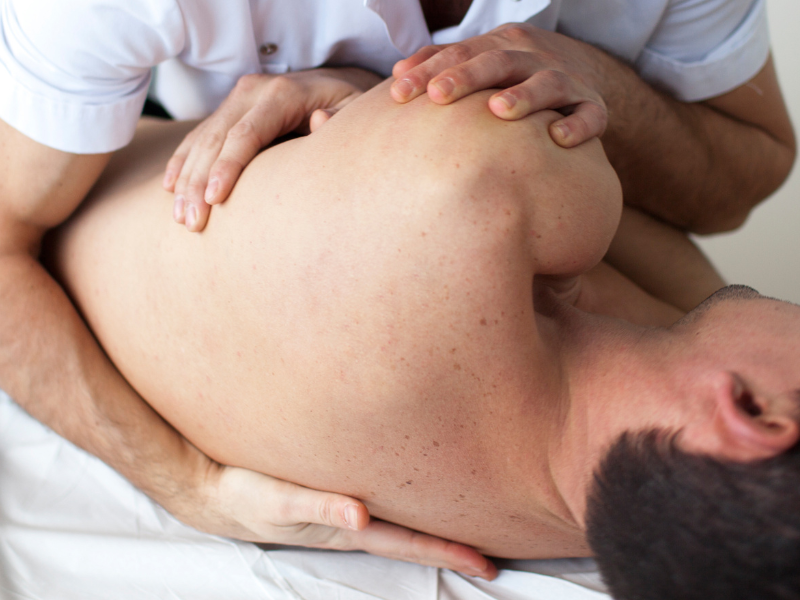We’ve all experienced those restless nights when the stress of the day finds its way into our dreams.
Read more: Bruxism: Understanding Its Causes, Consequences, And Surprising SolutionsFor some, however, the tension does not dissolve into nightmares or insomnia but manifests in a far more physical form known as bruxism.
Affecting up to a third of adults in their sleep, bruxism—also known as teeth grinding or clenching—is a prevalent yet often overlooked condition. So, what is bruxism, what causes it, and how does it affect our health? And, perhaps most importantly, how can something as simple as a pillow help alleviate it? Let's dive in.
What is Bruxism?
Derived from the Greek word "brychein," meaning "to gnash the teeth," bruxism is a condition characterized by the involuntary grinding, gnashing, or clenching of teeth. There are two types of bruxism: awake bruxism, which occurs during the day, and sleep bruxism, which happens during sleep. Both types can lead to a wide range of oral and systemic health problems if left untreated.
Causes of Bruxism
Bruxism is a multifactorial disorder, with causes ranging from psychological stress to certain lifestyle factors. The leading cause is stress and anxiety. People dealing with increased levels of stress, whether from work, relationships, or other life circumstances, are more likely to develop bruxism. Another significant cause is certain sleep disorders, including sleep apnea, where breathing repeatedly stops and starts during sleep.
Alcohol and caffeine consumption, smoking, and certain medications—particularly selective serotonin reuptake inhibitors (SSRIs)—can also trigger bruxism. A genetic predisposition is possible, as those with a family history of bruxism are more likely to develop the condition. Malocclusion, an abnormal alignment of teeth, can lead to bruxism as well, as it might result in uncomfortable or abnormal contact between the teeth during mastication or at rest.
The Consequences of Bruxism on Your Health
Bruxism can lead to a wide array of health consequences, both within the oral cavity and systemically. The physical act of grinding and clenching can damage the teeth, leading to tooth wear, fractures, and loss. It can also cause temporomandibular joint disorder (TMD), a painful condition affecting the joints that connect the jaw to the skull.
On a systemic level, the consequences can be even more severe. Chronic bruxism can lead to headaches, earaches, facial pain, and even changes in facial appearance due to hypertrophy of masticatory muscles. The chronic pain and discomfort caused by bruxism can also affect your mental health, leading to increased stress, anxiety, and even depression.
Moreover, sleep bruxism, particularly when associated with sleep apnea, can have severe systemic effects, including an increased risk of cardiovascular disease, high blood pressure, and stroke.
Factors that Incite Bruxism
Many factors can incite bruxism, often in combination. These include:
Psychological stress and anxiety: These are major triggers of both awake and sleep bruxism. The body’s natural response to stress includes the involuntary clenching of muscles, including those involved in mastication.
- Sleep disorders: Conditions like sleep apnea, insomnia, and even regular snoring are associated with a higher prevalence of sleep bruxism.
- Lifestyle factors: Excessive alcohol and caffeine intake, smoking, recreational drug use, and certain diets can exacerbate bruxism.
- Medications: Certain medications, including antidepressants (especially SSRIs), can induce bruxism. Even some types of recreational drugs, like ecstasy or methamphetamines, can cause intense bouts of grinding.
- Genetic factors: If you have a family history of bruxism, you are more likely to develop the condition.
- Malocclusion: Malocclusion or abnormal alignment of teeth may provoke discomfort, leading to teeth grinding.

The Role of a Therapeutic Pillow in Reducing Bruxism
The connection between a pillow and bruxism might seem tenuous at first, but a correctly chosen pillow can significantly contribute to mitigating bruxism symptoms. There are two key ways that Therapeutic Pillows can help: by promoting proper alignment and by aiding relaxation.
- Alignment: An unsuitable pillow may force your neck into a position that puts unnecessary pressure on your jaw, leading to increased clenching and grinding. A contoured pillow that provides proper support and promotes a neutral alignment can help reduce this pressure and, consequently, the severity of bruxism. The ideal pillow keeps your neck and spine in a straight line, alleviating undue stress on your jaw.
- Relaxation: Your pillow can also play a significant role in your overall sleep quality. A comfortable pillow that supports relaxation can lead to deeper, more restful sleep. In turn, this can help mitigate the effects of stress, one of the leading causes of bruxism.
Selecting the right pillow, therefore, can be an essential part of your strategy to deal with bruxism. Experiment with different types of pillows to find one that feels comfortable and supports your neck and head correctly. Memory foam and latex pillows, known for their ability to conform to the shape of your head and neck, can be a good starting point.
Bruxism, though often overlooked, can have profound impacts on an individual's quality of life. It is a complex disorder, with a wide variety of causes and effects that can impact both your oral and systemic health. Yet, by understanding the triggers and consequences of bruxism, we can begin to find ways to mitigate its impact.
Remember, stress management is key, and maintaining good sleep hygiene can also play a critical role. And something as simple as choosing the right pillow can make a big difference. Should you suspect that you suffer from bruxism, consult your dentist or a sleep specialist. They can help you devise a comprehensive approach to managing the condition, from stress management techniques to maybe even choosing the right pillow.
In the end, it's the little things that often make the biggest difference, and tackling something as commonplace as bruxism is no exception. Whether it's taking a few minutes to de-stress before bed, avoiding that late-night cup of coffee, or investing in a supportive pillow, every step matters. Together, we can grind bruxism to a halt.
Do you want to learn more? Read our Frequently Asked Questions for...
Bruxism, also known as teeth grinding or jaw clenching, can be a bothersome habit that affects many people. While there is no definitive cure for bruxism, there are several steps you can take to manage and reduce its impact on your daily life.
Firstly, it's important to identify the underlying causes of bruxism. Stress and anxiety are often contributing factors, so finding healthy ways to relax and manage stress levels can be beneficial. Engaging in activities like yoga, meditation, or deep breathing exercises can help alleviate tension and reduce teeth grinding.
Additionally, it may be helpful to address any dental issues that could be exacerbating bruxism. A visit to your dentist can help identify any misaligned teeth or bite problems that may be contributing to the grinding. In some cases, a custom-made mouthguard can be prescribed to protect your teeth from further damage.
Managing bruxism involves a combination of stress reduction techniques and dental interventions. By addressing the underlying causes and protecting your teeth, you can effectively minimize the impact of bruxism on your oral health and overall well-being. Remember, it's always best to consult with a dental professional for personalized advice and treatment options.
 0
0 0
0








